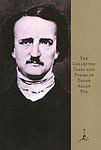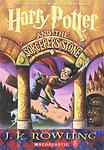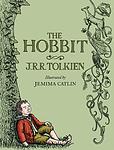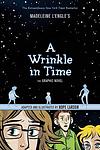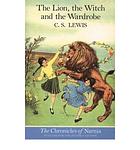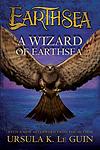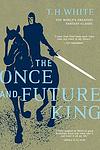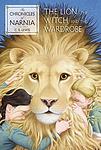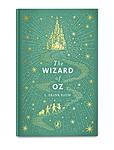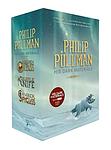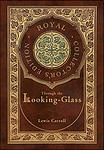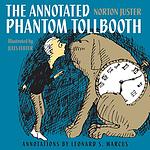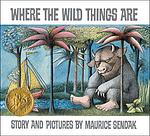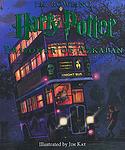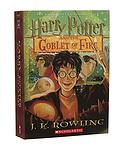The Greatest "Speculative Fiction, Juvenile" Books of All Time
Click to learn how this list is calculated.
This list represents a comprehensive and trusted collection of the greatest books. Developed through a specialized algorithm, it brings together 300 'best of' book lists to form a definitive guide to the world's most acclaimed books. For those interested in how these books are chosen, additional details can be found on the rankings page.
Genres
Speculative fiction is an umbrella genre encompassing narrative fiction with supernatural or futuristic elements. This includes genres such as science fiction, fantasy, horror, supernatural fiction, superhero fiction, utopian and dystopian fiction, apocalyptic and post-apocalyptic fiction, and alternate history. The unifying factor of speculative fiction is its departure from the narrative constraints of reality, exploring imaginative and often profound questions that challenge our understanding of the world and our place within it. These stories often delve into themes like the human condition, social commentary, and the exploration of philosophical and ethical dilemmas through the lens of the fantastical or the yet-to-be-possible. By pushing the boundaries of the known, speculative fiction invites readers to consider the myriad possibilities of existence and the potential consequences of our actions in worlds that are, at once, vastly different from and eerily similar to our own.
The Juvenile category of books typically refers to literature that is written for children and young adults, typically between the ages of 8 and 18. These books are often characterized by their age-appropriate themes, language, and content, and are designed to engage and entertain young readers while also providing educational value. Juvenile books can cover a wide range of genres, including fiction, non-fiction, fantasy, science fiction, and more, and are an important part of the literary landscape for young readers.
Countries
Date Range
Reading Statistics
Click the button below to see how many of these books you've read!
Download
If you're interested in downloading this list as a CSV file for use in a spreadsheet application, you can easily do so by clicking the button below. Please note that to ensure a manageable file size and faster download, the CSV will include details for only the first 500 books.
Download-
1. Alice's Adventures in Wonderland by Lewis Carroll
This novel follows the story of a young girl named Alice who falls down a rabbit hole into a fantastical world full of peculiar creatures and bizarre experiences. As she navigates through this strange land, she encounters a series of nonsensical events, including a tea party with a Mad Hatter, a pool of tears, and a trial over stolen tarts. The book is renowned for its playful use of language, logic, and its exploration of the boundaries of reality.
-
2. Slaughterhouse-Five by Kurt Vonnegut
The novel follows the life of Billy Pilgrim, a World War II veteran who has become "unstuck in time," experiencing his life events out of order. This includes his experiences as a prisoner of war in Dresden during the Allies' firebombing, his post-war life as a successful optometrist, his abduction by aliens from the planet Tralfamadore, and his eventual death. The book is a critique of war and a demonstration of the destructive nature of time, with a nonlinear narrative that reflects the chaos and unpredictability of life.
-
3. Dracula by Bram Stoker
This classic horror novel tells the story of Count Dracula's attempt to move from Transylvania to England so that he may find new blood and spread the undead curse, and of the battle between Dracula and a small group of people led by Professor Abraham Van Helsing. The narrative is composed of journal entries, letters, and telegrams written by the novel's protagonists, providing different perspectives on the gruesome events unfolding. The book touches on themes of sexuality, gender roles, and the clash of modern science with traditional superstition.
-
4. The Complete Tales and Poems of Edgar Allan Poe by Edgar Allan Poe
This collection brings together all of the author's most famous works, including poems, short stories, and novellas. Known for his macabre and gothic storytelling, the author's works are filled with themes of death, love lost, and human frailty. Notable inclusions are the haunting poem "The Raven," the chilling stories "The Tell-Tale Heart" and "The Fall of the House of Usher," and his only complete novel, "The Narrative of Arthur Gordon Pym."
-
5. Harry Potter And The Philosopher's Stone by J. K Rowling
The story follows a young boy, Harry Potter, who learns on his 11th birthday that he is the orphaned son of two powerful wizards and possesses unique magical powers of his own. He is summoned from his life as an unwanted child to become a student at Hogwarts, an English boarding school for wizards. There, he meets several friends who become his closest allies and help him discover the truth about his parents' mysterious deaths, the dark wizard who wants to kill him, and the magical stone that holds immense power.
-
6. Watership Down by Richard Adams
This novel follows a group of rabbits as they flee their warren due to a foreseen catastrophe. The rabbits, led by Hazel and his psychic brother Fiver, face numerous challenges and adventures as they search for a new home. They encounter predators, hostile rabbit communities, and human threats. The book explores themes of leadership, survival, and freedom, all set within the natural world and its inherent dangers.
-
7. Gravity's Rainbow by Thomas Pynchon
Set during the end of World War II, the novel follows Tyrone Slothrop, a lieutenant in the U.S. Army, as he tries to uncover the truth behind a mysterious device, the "Schwarzgerät", that the Germans are using in their V-2 rockets. The narrative is complex and multi-layered, filled with a vast array of characters and subplots, all connected by various themes such as paranoia, technology, and the destructive nature of war. The book is known for its encyclopedic nature and its challenging, postmodernist style.
-
8. The Hobbit by J. R. R. Tolkien
In this fantasy novel, a timid and unadventurous hobbit named Bilbo Baggins is whisked away on a grand adventure by a wizard and a group of dwarves. Their mission is to reclaim the dwarves' homeland and treasure from a fearsome dragon. Throughout the journey, Bilbo grows in courage and cunning, proving himself a true hero as he encounters trolls, goblins, giant spiders, and other perils. The novel culminates with a great battle involving various races of Middle Earth, after which Bilbo returns home, forever changed by his experiences.
-
9. A Wrinkle In Time by Madeleine L'Engle
The novel follows the story of a young girl named Meg Murry, her younger brother Charles Wallace, and their friend Calvin O'Keefe as they embark on a cosmic journey to rescue Meg and Charles Wallace's father. The father, a scientist, has been missing since he discovered a new planet using the concept of Tesseract, which is a wrinkle in time. Guided by three mysterious celestial beings, the children travel across different dimensions, face evil forces, and learn about the power of love and self-sacrifice.
-
10. Decameron by Giovanni Boccaccio
"Decameron" is a collection of 100 stories told by a group of seven young women and three young men sheltering in a secluded villa just outside Florence to escape the Black Death, which was afflicting the city. The tales, which range from the erotic to the tragic, the hilarious to the instructional, are embedded in a rich framework narrative that provides a detailed portrait of the society of the Italian Renaissance.
-
11. The Lion, The Witch and the Wardrobe by C. S. Lewis
Four siblings are evacuated from London during World War II and sent to live with an old professor in the countryside. In his house, they discover a magical wardrobe that serves as a portal to the land of Narnia, a world filled with mythical creatures and ruled by an evil White Witch. The children are soon caught up in a struggle to free Narnia from the witch's eternal winter, aided by the majestic lion Aslan. The story combines elements of fantasy, adventure, and Christian allegory.
-
12. A Wizard of Earthsea by Ursula K. Le Guin
This fantasy novel follows the story of a young boy named Ged who lives in a world of islands called Earthsea. Ged discovers he has a natural talent for magic and is sent to a school for wizards on the island of Roke. As he grows and learns, his arrogance leads him to unleash a shadow creature that he must then spend years trying to defeat. The book explores themes of balance, power, and the danger of hubris, as Ged learns to control his abilities and accept responsibility for his actions.
-
13. War of the Worlds by H. G. Wells
This classic science fiction novel tells the story of a Martian invasion of Earth, as experienced by an unnamed protagonist and his brother. The Martians, who are technologically far superior to humans, cause widespread devastation with their heat-ray weapons and towering tripods. Despite humanity's best efforts to resist, they seem unstoppable. The novel is a commentary on British imperialism and explores themes of human survival and evolution.
-
14. Macbeth by William Shakespeare
This classic play follows the tragic tale of Macbeth, a Scottish general whose ambition is sparked by a prophecy from three witches that he will one day become King of Scotland. Consumed by ambition and spurred on by his wife, Macbeth murders King Duncan and takes the throne. However, guilt and paranoia plague him, leading to a reign of terror and further bloodshed. His desperate attempts to cling onto power lead to his downfall, illustrating the destructive power of unchecked ambition.
-
15. The Once and Future King by T. H. White
This novel is a retelling of the Arthurian legend, from Arthur's childhood tutelage under the wizard Merlyn to his eventual death. The story follows Arthur's journey from a naive boy to a wise and just king, his establishment of the Round Table, his marriage to Guinevere, and his complex relationship with his illegitimate son, Mordred. The narrative explores themes of power, justice, war, and human nature, offering a nuanced and humanizing portrayal of a well-known mythical figure.
-
16. The Chronicles of Narnia by C. S. Lewis
This seven-part series follows the adventures of various children who play central roles in the unfolding history of the fantastical realm of Narnia. The children are magically transported to Narnia from our world, where they aid the noble lion Aslan in his struggles against evil forces in order to restore peace and justice. The series explores themes of good versus evil, the nature of faith, and the power of sacrifice, all set against a richly imagined magical world full of diverse creatures and landscapes.
-
17. The Wonderful Wizard of Oz by L. Frank Baum
A young girl from Kansas is swept away by a tornado to a fantastical land called Oz. To return home, she must find the mysterious Wizard in the Emerald City, and on her journey, she befriends a Scarecrow in need of a brain, a Tin Woodman longing for a heart, and a Cowardly Lion seeking courage. They all hope the Wizard can grant their wishes, but they must first overcome the Wicked Witch of the West who poses a great danger to them.
-
18. His Dark Materials by Philip Pullman
"His Dark Materials" is a fantasy trilogy that follows the journey of a young girl named Lyra Belacqua and her daemon, Pantalaimon, across parallel universes. Throughout their adventures, they encounter a variety of mythical creatures, confront religious and political systems, and grapple with complex themes such as free will, original sin, and the nature of consciousness. The series also delves into the mysteries of Dust, a strange particle integral to the multiverse's function.
-
19. Through the Looking Glass by Lewis Carroll
This sequel to Alice's Adventures in Wonderland sees the young protagonist, Alice, embarking on another whimsical journey after stepping through a looking glass. In this mirror-image world, Alice encounters talking flowers, living chess pieces, and a variety of eccentric characters, including Tweedledee and Tweedledum, the Red Queen, and Humpty Dumpty. The narrative is structured around a game of chess, with Alice striving to become a queen. The book is filled with clever wordplay, riddles, and fantastical elements, reflecting the author's unique take on logic and language.
-
20. The Phantom Tollbooth by Norton Juster
A young boy named Milo, who is always bored and uninterested in the world around him, unexpectedly receives a magic tollbooth. When he drives through it in his toy car, he is transported to the Kingdom of Wisdom. Here, he embarks on a quest to rescue the princesses Rhyme and Reason, who have been exiled by the warring brothers, King Azaz of Dictionopolis (where words are supremely important) and the Mathemagician of Digitopolis (where numbers are most valued). Along his journey, Milo learns the value of learning and the excitement that can be found in the world around him.
-
21. Where the Wild Things Are by Maurice Sendak
A young boy named Max, dressed in his wolf costume, wreaks such havoc through his household that he is sent to bed without his supper. In his room, a mysterious, wild forest and sea grows out of his imagination, and Max sails to the land of the Wild Things. The Wild Things are fearsome-looking monsters, but Max conquers them by “staring into their yellow eyes without blinking once”, and he is made the king of all wild things. However, he soon finds himself lonely and homesick and returns home to his bedroom where he finds his supper waiting for him, still hot.
-
22. Harry Potter And The Prisoner Of Azkaban by J. K Rowling
In this third installment of the popular fantasy series, the protagonist enters his third year at a magical school, only to find out that a notorious prisoner has escaped from a supposedly inescapable prison and is believed to be after him. As the school year progresses, he learns more about his parents' history, uncovers secrets about his professor, and discovers a magical map. He also learns to summon a powerful defensive spell, confronts the escaped prisoner, and uncovers the truth about his parents' betrayal and death. The book ends with him saving an innocent life and learning a valuable lesson about the complexity of human nature and the importance of true friendship.
-
23. Harry Potter and the Goblet of Fire by J. K Rowling
In this fourth installment of a popular fantasy series, a young wizard finds himself unexpectedly entered into a dangerous tournament between rival schools of magic. He must compete in a series of challenging tasks, including a deadly dragon chase and a terrifying underwater rescue mission. Meanwhile, he's dealing with regular teen issues like crushes, jealousy, and school dances. But as he unravels the mystery behind his selection for the tournament, he uncovers a dark plot that puts his life in danger and hints at the return of a powerful dark wizard.
-
24. Charlie And The Chocolate Factory, by Roald Dahl
A young boy named Charlie lives in poverty and dreams of visiting the nearby chocolate factory owned by the eccentric and mysterious Willy Wonka. When Charlie finds one of the five golden tickets hidden in chocolate bars worldwide, he earns the chance to tour the factory. Accompanied by his Grandpa Joe and four other children, Charlie embarks on a magical and surreal adventure inside the factory, where he learns valuable lessons about greed, arrogance, and honesty.
-
25. Flowers for Algernon by Daniel Keyes
The book is a poignant science fiction narrative that follows the life of Charlie Gordon, a man with an IQ of 68, who undergoes an experimental surgical procedure intended to increase his intelligence. The story is told through Charlie's progress reports, which initially showcase his limited comprehension and writing ability. As the treatment takes effect, Charlie's intelligence surpasses that of the average person, leading to a dramatic increase in his understanding of the world, relationships, and his own past. However, the transformation is not without its pitfalls, as Charlie grapples with the emotional and social implications of his newfound abilities, and the impermanence of the experiment's success becomes a haunting reality. The novel explores themes of intellect, human dignity, and the ethics of scientific experimentation.
Reading Statistics
Click the button below to see how many of these books you've read!
Download
If you're interested in downloading this list as a CSV file for use in a spreadsheet application, you can easily do so by clicking the button below. Please note that to ensure a manageable file size and faster download, the CSV will include details for only the first 500 books.
Download


